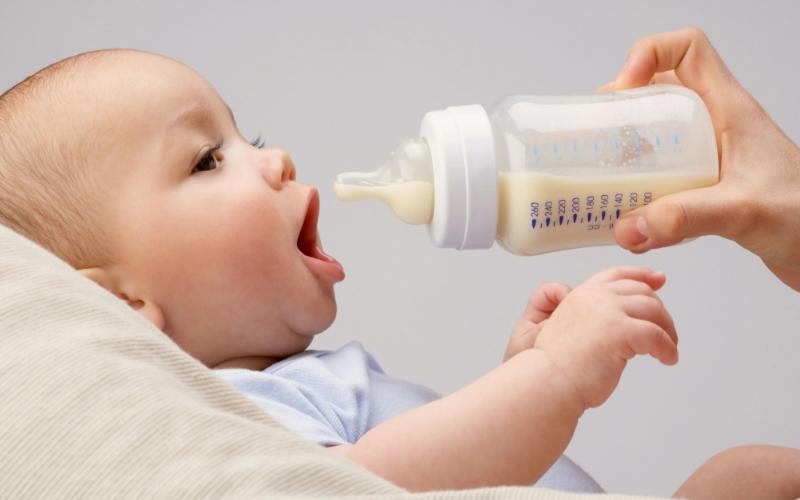Fonterra's Nutiani Releases Comprehensive Report on Healthy Aging Across Generations
A recent report by Nutiani, a wellbeing solutions provider under Fonterra, highlights the growing priority of healthy aging among consumers aged 45 and older, while also addressing the challenges in meeting the diverse needs of this demographic.

The report, titled "Proactive Nutrition for Healthy Aging," reveals that although a significant portion of older adults prioritize healthy aging, their needs vary widely. Some individuals within this group are in peak physical condition, while others face cognitive and physical limitations.
Katie McClure, Director of Category Innovation at Fonterra, emphasized the importance of understanding and catering to the unique needs of the aging population. “Our latest report underlines the vital role nutrition plays in supporting healthy aging. As the aging population grows, it is imperative for brands to understand and address the unique needs and concerns of this diverse demographic,” she said. “This presents a significant opportunity for nutrition brands to innovate and provide tailored solutions that resonate with both older adults and proactive younger generations.”
Interestingly, while belief in the impact of nutrition on health increases with age, the intention to improve diet declines fr om 75% in individuals aged 34 to 45 to 51% in those aged 65 to 80. Charlotte Ortiz, Global Brand Marketing Manager at Nutiani, highlighted this gap: “There does appear to be a gap between the understanding around the role of nutrition and the intention to improve diet with age. Nearly 9 in 10 consumers globally recognize the importance of a balanced diet to prevent illnesses, yet older consumers show less interest in improving their dietary habits compared to younger counterparts.”
The report also discusses gender-specific needs, noting that women, who typically live longer than men, are more likely to face declining mental wellbeing, and joint and bone health issues during menopause. Men, on the other hand, are affected by hormonal changes, reduced libido, decreased muscle mass, fatigue, and mood changes.
The concept of healthy aging has evolved from focusing on disease prevention to a holistic approach encompassing cognitive, physical, and social capabilities. This shift underscores the importance of lifelong efforts to maintain overall wellbeing.
Ortiz stressed the importance of starting early to build trust with both current elderly consumers and future seniors. She also pointed out the financial constraints faced by older adults in low-to-middle-income countries, wh ere 80% of the older population will reside by 2050. "Understanding the financial constraints prevalent among older consumers in these regions is paramount," she said, emphasizing the need for affordable solutions.
To address these challenges, Nutiani suggests that companies offer products in smaller pack sizes, implement value-driven pricing strategies, and ensure transparency in product benefits. Collaborations with local healthcare providers and community organizations can also enhance accessibility and distribution, effectively reaching underserved populations.
Katie McClure, Director of Category Innovation at Fonterra, emphasized the importance of understanding and catering to the unique needs of the aging population. “Our latest report underlines the vital role nutrition plays in supporting healthy aging. As the aging population grows, it is imperative for brands to understand and address the unique needs and concerns of this diverse demographic,” she said. “This presents a significant opportunity for nutrition brands to innovate and provide tailored solutions that resonate with both older adults and proactive younger generations.”
Interestingly, while belief in the impact of nutrition on health increases with age, the intention to improve diet declines fr om 75% in individuals aged 34 to 45 to 51% in those aged 65 to 80. Charlotte Ortiz, Global Brand Marketing Manager at Nutiani, highlighted this gap: “There does appear to be a gap between the understanding around the role of nutrition and the intention to improve diet with age. Nearly 9 in 10 consumers globally recognize the importance of a balanced diet to prevent illnesses, yet older consumers show less interest in improving their dietary habits compared to younger counterparts.”
The report also discusses gender-specific needs, noting that women, who typically live longer than men, are more likely to face declining mental wellbeing, and joint and bone health issues during menopause. Men, on the other hand, are affected by hormonal changes, reduced libido, decreased muscle mass, fatigue, and mood changes.
The concept of healthy aging has evolved from focusing on disease prevention to a holistic approach encompassing cognitive, physical, and social capabilities. This shift underscores the importance of lifelong efforts to maintain overall wellbeing.
Ortiz stressed the importance of starting early to build trust with both current elderly consumers and future seniors. She also pointed out the financial constraints faced by older adults in low-to-middle-income countries, wh ere 80% of the older population will reside by 2050. "Understanding the financial constraints prevalent among older consumers in these regions is paramount," she said, emphasizing the need for affordable solutions.
To address these challenges, Nutiani suggests that companies offer products in smaller pack sizes, implement value-driven pricing strategies, and ensure transparency in product benefits. Collaborations with local healthcare providers and community organizations can also enhance accessibility and distribution, effectively reaching underserved populations.










